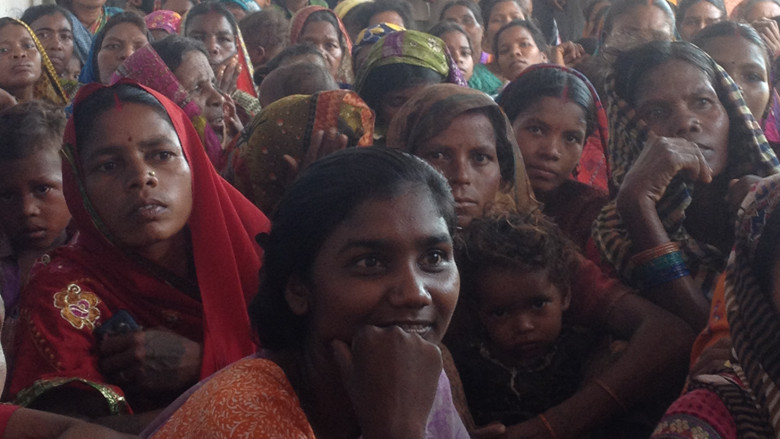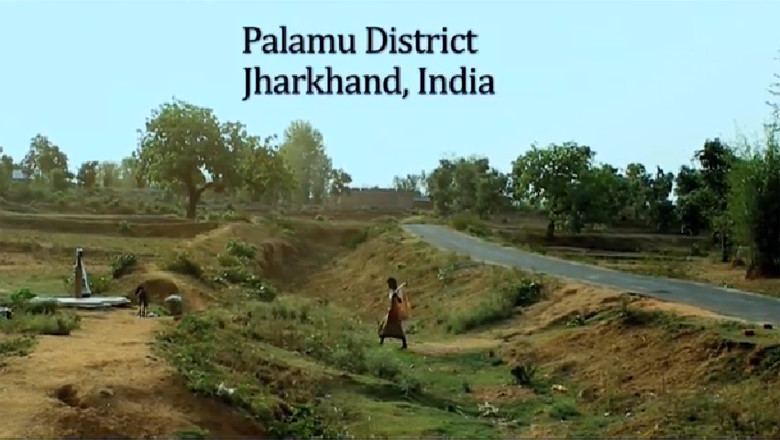Sarita Musharin, whose sun-wrinkled face makes her seem much older than her 30-something years, sits in front of her small mud hut in the hills outside of Daltonganj, in the Indian state of Jharkhand, to barter with a drifter. The drifter, thin to the point of starvation, offers her a dried cobra head – among other herbs and bark to be used as food or thought to bring luck – for a small bag of rice. Sarita, with no outlet to other financing options, picks a few items and makes the exchange.
“My rice has been the only way for me to purchase things. The men of the village deal with exchange outside,” she says, as she gestures with her well-worked hands towards a group of men sitting in the center of the nine hut village. “[The women] are made to stay here to care for the children.”
Jharkhand is home to many tribal communities who are often left out of mainstream society. Often equated with the Maoist insurgency that has plagued the area for the past few decades, its residents are further ostracized for their misunderstood beliefs in mystic powers and outdated practices. In addition, these communities remain dominantly patriarchal and women are left only for childbirth and cooking.
Despite efforts from the government of India to provide assistance in food, education, and pension plans, these communities, especially women, remain without as they cannot access the bank accounts that unlock these benefits. With access to financial services (bank accounts, loans, etc.) women’s bargaining power in society increases as they are equipped with the tools that help them earn and maintain a living. Additionally, studies overwhelmingly show women are more likely to save, allocate, and invest money in order to be protected against unexpected expenses, and in their children’s education; giving an opportunity for a better livelihood to the next generation.
Mahila Bank: An innovative solution
Alternative for India Development (AID), an Indian NGO that works to better the lives of tribal communities, noticed that despite great government programs, tribal citizens were still often left without life changing basic services.


